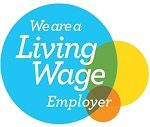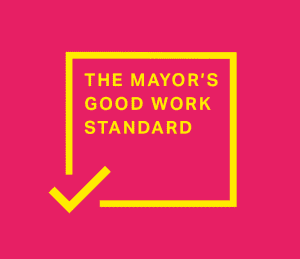Understanding relationships between landlords and their tenants during COVID-19

Findings and recommendations from our recent workshops with renters and private landlords
The Coronavirus crisis has had a dramatic impact on the income streams of both landlords and tenants, with a wave of job losses in March followed by a reduction in income for many due to furlough. Centre for London conducted polling in June 2020 that showed London tenants were more likely to be struggling to make ends meet than the general population (36% v 28%).
The government has taken steps to try to mitigate harm to both landlords and renters:
- Suspension of possession proceedings: From 3 March, renters have been protected from eviction, but the ban is now due to be lifted on 20 September 2020, after a last minute U-turn by the government after warnings that lifting the ban on the original date of 23 August was to soon and would lead to mass homelessness.
- ‘Mortgage holidays’: Mortgage borrowers who have been financially impacted by the Coronavirus pandemic can apply to extend their mortgage repayment holiday until 31 October 2020. This has offered some relief to landlords when their tenants have lost income.
- Advising a compassionate approach: The government advised a compassionate approach to resolving difficulties, and for landlords to work constructively with tenants who are struggling to pay their rent where income has been lost due to the crisis.
- On Monday 17 and Tuesday 18 August, young private renters from our Young Private Renters group ran two workshops: one with their fellow renters and one with private landlords. The attendees shared their experiences and recommendations for the government going forward. We have listed below the key findings from the workshops and other conversations with renters and landlords during the crisis, and shared our collective recommendations on action the government and industry can take to avert the coming crisis in the private rental sector.
What have we been hearing from private renters during the COVID-19 crisis?
- For renters who have suffered income loss through furlough or unemployment, covering the rent has been a huge challenge. With furlough coming to an end, we anticipate a flood of redundancies, with many more private renters moving onto Universal Credit.
- Those who are locked into contracts are living in extremely difficult circumstances. Universal Credit cannot cover most people’s rent – in fact currently it only covers the bottom 30% of market rent.
- Young people have been badly hit. They are more likely to have been furloughed, and are more likely work in sectors hit badly by the crisis such as hospitality. Freelancers, workers in the gig economy and those on zero hours contracts who are already often on low incomes are also struggling. These groups have little or no savings to cover income gaps.
- Renters are being “responsible”. They are prioritising their rent, cutting down on other expenditure, and in some cases even using overdrafts or other types of credit to cover shortfalls, because housing matters more than anything. Renters in shared households are trying to collectively cover income lost by their housemates but this is unsustainable long term.
- Some renters have had good support from their landlords, who have communicated with tenants and negotiated reductions. But others have had little, if any, support. The power to agree rent reductions is ultimately in the landlord’s hands. Many renters describe only being able to negotiate with their landlords through their letting agents, and in fact depend on them to take a ‘compassionate approach’.
- Everything we know about financial stress indicates that there are likely to be significant mental health challenges for private renters who have lost income.
“I am trying to do everything for free. For example if I have to go out with friends, I ask them to go to the park instead. Every day, I am thinking ok this month I have just £200 to spend. It is not just about spending less, it’s the worry I have every day. I feel also more lonely right now because I am trying to not go out every time. Unless my friend comes here, to my house, I don’t want to spend money to go out. … I am all the time at home. I am feeling a bit…not very well.” – private renter
What have we been hearing from private landlords during the COVID-19 crisis?
- Landlords are worried that government and media messaging about mortgage holidays risks a public perception that they can easily tolerate income loss. They believe that as a result, renters consider mortgage holidays to mean that landlords can manage a complete loss of rent. In fact, the renters we spoke to were understanding of their landlord’s financial position and the need for them to maintain their rental income.
- While there are significant numbers of ‘big landlords’ who own multiple properties, there are also independent landlords who have inherited or bought a property as one of the few options they have for earning a reliable income or as a pension replacement. They rent out their first property to pay the mortgage or rent on the second property. While some larger landlords may be able to tolerate a drop in rental income, the income and expenditure for smaller landlords can be finely balanced – profit margins can be slim and they are not eligible for government support if they lose work.
- The landlords we talked to were willing to negotiate rent with tenants who have lost income, but some small landlords rely on the extra income they receive through renting their property to supplement their essential expenditure, so this is not sustainable long term. Some landlords worry they will lose their property if their rental income drops for a sustained period, leading to a likely eviction.
- The government’s suggestion that landlords take a compassionate approach is complex. Both renters and landlords understand themselves to be in a business relationship. Many landlords want to provide good housing but work through a letting agent and rely on them to act fairly.
“I think the tenants appreciated that at the beginning, we said to them, we can work this out together. I was concerned at the time that they thought the mortgage holiday meant we didn’t have to pay the mortgage and equally, if we allowed the a rent reduction, an arrangement to pay, it wasn’t a gift, it had to be paid back.” – private landlord
“Unless you are a corporate business person most landlords are just kind of getting by. If this is your business you know buying properties and renting them out then obviously you are doing quite well. But for people who have a job, basically just getting by.” – private landlord
How can the government support landlords to keep tenants in their homes? Our recommendations:
These recommendations have been put forward by Toynbee Hall’s Young Private Renter peer research group, and have been shaped and prioritised by them.

The peer research group is in support of extending the eviction ban, but this alone cannot resolve the desperate financial circumstances faced by renters locked into contracts, who have lost income due to the COVID-19 crisis. There must be an increase in government support to allow them to stay in their homes and quickly find new employment. This will also allow landlords to stabilise their income and support them to help renters to stay in their homes during the crisis.
1. Increase Universal Credit so that it adequately covers local rents for at least the duration of the crisis. Government support for housing costs currently only covers the bottom 30% of market rents for a given geographical area. Increasing the housing allowance to cover local rents will mean that, if a renter loses their job, they can still cover their rent while they seek new employment, without their job search being hampered by financial stress and eviction threats.This will make it much more likely that they can quickly and successfully find a new job without being saddled with debt. The government must also suspend no recourse to public funds conditions, to allow migrants who have lost employment to support to cover their rent and prevent homelessness .
2. The letting industry must stop discriminating against renters who are in receipt of welfare benefit and respect the Equalities Act. In July 2020, a landmark court case found rejecting tenancy applications because the applicant is in receipt of housing benefit to be illegal. There is a perception amongst both landlords and renters that mortgage providers and insurers are responsible for such discriminatory practice, but many large providers have removed these terms. Those lenders and insurers who have not already done so should immediately remove discriminatory clauses from their contracts. But letting agents, landlords and websites advertising properties for rent must also take responsibility for rooting this discrimination out of the sector.
The peer research group have also discussed the following ideas:
1. The need to create tenancy agreements that provide security for private renters is more urgent than ever. The Renters’ Reform Bill would introduce open-ended tenancies and abolish no fault evictions. The government should move to write the promised new deal for renters into law as soon as Parliament returns from recess.
2. There should be a mechanism for landlords to be able to easily sell their occupied property to a social housing provider at market rate if they can no longer maintain their finances because of the crisis. Tenants should be able to continue their residency for the duration of their contract.
3. Suspend means-testing for Universal Credit for the duration of the crisis, to allow landlords with properties who have lost their employment to receive financial support whilst continuing to provide homes for their tenants.
4. Increase the amount provided to local authorities for discretionary housing payments to help them to clear rent arrears, and support this call from our local authority (London Borough of Tower Hamlets).





















